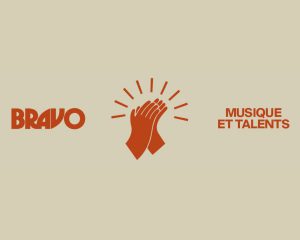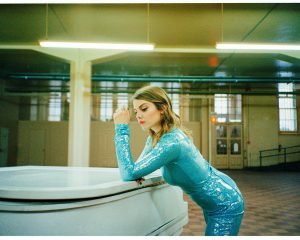Who would have guessed? It was a bold move. In the wake of the #MeToo movement that led to the hasty departure of record company Dare to Care/Grosse Boîte’s founder, one of the artists on its roster decided to buy the business. That’s unprecedented. Such a move has never been seen among Québec independent music labels.
Taking advantage of the professional lull caused by the pandemic, Cœur de pirate, a.k.a. Béatrice Martin, decided to dive in head-first. Is she a businesswoman? She’s been a businesswoman since the very beginning of her career in 2008: “All artists are freelancers and entrepreneurs,” she explains to Words & Music. “Now I’m on the other side of things, and I’m really enjoying the challenge. I’m really happy.”
 Re-christened Bravo Musique, the label owns the catalogues of (among others), Émile Bilodeau, Maude Audet, Jean Leloup, part of Fred Fortin’s, Chocolat, Jimmy Hunt, Gab Bouchard, Jérôme 50, Malajube, and… Cœur de pirate. A transaction worth its weight in gold.
Re-christened Bravo Musique, the label owns the catalogues of (among others), Émile Bilodeau, Maude Audet, Jean Leloup, part of Fred Fortin’s, Chocolat, Jimmy Hunt, Gab Bouchard, Jérôme 50, Malajube, and… Cœur de pirate. A transaction worth its weight in gold.
Béatrice Martin has surrounded herself with new associates, but the Dare to Care personnel already in place aren’t going to change anytime soon. “It’s still a company that’s been around for 20 years,” says Martin. “For sure, some of the people who were at Dare to Care are no longer with us [General Manager Laurie Boisvert has just left], but they were extremely loyal and showed me a lot of empathy when I needed it. I kept what’s good and moved on towards a mindset that’s closer to my own.”
In any case, that loyalty and empathy are among the cornerstones of its corporate culture. Obviously, a clear code of conduct regarding the behaviour of its employees is in place. The cause seemed to have been heard after the departure of Les soeurs Boulay. “Some of my values are different from what Dare to Care used to be,” says Martin.
Hence another challenge that was missing from Martin’s universe: Artistic Director. “I won’t be there every day, but I intend to go to the office as often as possible,” she says. “I’ll finally learn how to create a proper Google doc! I do intend to closely monitor the Artistic Director, and supervise the planning, and I have a super-fun team that’s there to support me. I provide my feedback for all the aspects of the business!”
Singer and dancer Naomi is the first new artist to sign with Bravo Musique. “We’ll keep paying homage to the artists who are already part of the company’s DNA,” Martin confirms. “And to look after their interests. I’m confident that we’ll discover artists who will take us into this new decade.” In other words, Bravo Musique intends to carry on recruiting Québec’s best Francophone talent.
“2020 was horrible for artists in development; we have to find solutions now”
Although it’s not teeming with new finds, Bravo Musique, the flagship, has changed flags. To start with, Bravo is more festive. And the offices will move to 513 Saint-Joseph, in Montréal, says Martin. One thing is certain, the revenue linked to the different playlists and streaming will also be at the heart of the company’s priorities. “We’re facing some unexpected and challenging things right now, it’s forcing us to re-think certain structures; I find it more exciting to find solutions,” she says.

Photo: Caraz
But don’t you go believing Cœur de pirate is putting her own career on hold. “I’m still very active as a musician: I don’t have a choice,” says Martin. The year 2021 already sees her playing several dates in the U.S. this spring and in Europe in October… “It’s not about conquering new markets as much as it is returning to cities who are anxious to have you back!” she says. “Just to give you an idea, I played in Mexico City and the crowd knew every single lyric of my songs. Obviously, as an artist, you want to live moments like that over and over again.”
Her fifth album, En cas de tempête ce jardin sera fermé (2018), marked a clear musical evolution for the singer-songwriter and pianist. Her international stage experience and understanding of these markets reflect positively on her knowledge of the music industry. There’s no doubt that Bravo Musique will benefit from all that.
“I’m anxious to see when we can start doing live again, especially for the musicians,” says Martin. “2020 was horrible for artists in development. We have to find solutions now, and I’m actively involved in that process.”
It’s clear that Cœur de pirate is closely monitoring her investment. We should never lose sight of one thing: she intends to take care of Bravo Musique’s roster on a human level, too… and that’s excellent news.